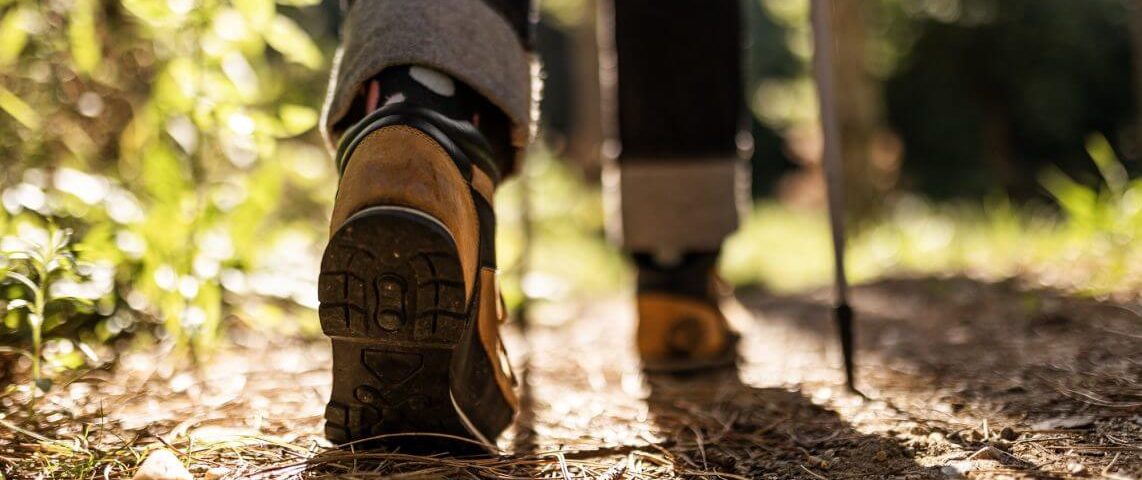- Have any questions?
- 412-123-4567
- noreply@upmc.com
Keeping Safe This Hunting Season

While gun accidents are a rarity, they can be serious — and often avoidable.
Changing leaves and cooler weather signal many autumn arrivals, including the start of fall hunting season. Whether you’re a seasoned hunter or a beginner, UPMC trauma and critical care surgeon Greg Watson, MD, says it’s important to always be gun safety aware.
“Most hunting incidents are self-inflicted or same hunting party incidents," says Dr. Watson, an avid hunter and lifelong gun owner. “They don’t have their gun on safety and accidentally shoot themselves or somebody else.”
The good news is that in Pennsylvania, hunting-relating shooting incidents (HRSIs) have declined by 80% since 1959. That’s the year the Pennsylvania Game Commission instituted mandatory hunter education. In 2023, 13 HRSIs were reported in Pennsylvania, one of which was fatal. Six involved rifles, six involved shotguns, and one involved a crossbow.
While accidents do happen when hunting, Dr. Watson says following these basic rules for safe handling of firearms can help reduce potentially deadly ones.
- Treat every firearm as if it is loaded.
Never assume a gun is unloaded. Keep your finger off the trigger until you’re ready to shoot. - Always control the muzzle.
Keep your muzzled pointed down, especially when you cross a fence, a creek, or if you’re walking with a group of people. - Be 100% sure of your target.
Never shoot without positively identifying your target and being aware of what’s beyond it. Movements and rustling sounds may signal the presence of a fellow hunter — or a hiker and their canine companions. “Never point a gun at anything you’re not willing to fire at or kill,” says Dr. Watson. - Hunt with a partner.
Hunting with a buddy increases the chance of a successful hunt and adds an extra layer of safety in the event of an injury. - Tell someone your plans.
Never head out on a hunting trip without making sure someone knows where you’ll be and when you expect to return. - Wear bright clothing (like blaze orange).
Make yourself easily visible. Choose colors that stand out, like bright, fluorescent orange. Avoid earth-toned and animal-colored clothing. “And never wear red, white, blue, or black during turkey hunting season,” says Dr. Watson. “Those are the colors of a wild turkey gobbler.” - Call game with caution.
While turkey and duck calls can help draw out your prey, they also attract the attention of other hunters. Take care to avoid “friendly fire” accidents — whether you’re making or potentially responding to — a duck or turkey call. - Never use alcohol or drugs before or while hunting.
Drinking and drug use can impair judgment and coordination. Also, avoid taking over-the-counter or prescription medicines that cause drowsiness prior to hunting. - Carry a cell phone — and make sure you know where you are.
If you need to call 911, you must be able to provide a location or directions. “It’s true that you may not have reception in some areas,” says Dr. Watson. “But having a cell can be life-saving in the event of a serious accident.” - Don’t forget tree stand safety.
Always use a safety harness. Never climb into a tree with a loaded gun or arrow ready to shoot. Use a haul line to raise or lower your gear, including unloaded firearms, bow, and arrows. - Learn basic first aid — and carry a first aid kit.
Every hunter should carry a first-aid kit and be prepared to handle outdoor emergencies. Dr. Watson recommends taking a STOP THE BLEED® course to learn how to recognize and quickly control life-threatening bleeding. “Applying direct pressure on a wound can be very effective,” he says. “But having that training and having a tourniquet — and knowing how to use it — can be literally lifesaving.”



